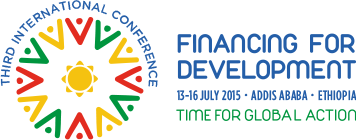Why and how Development Banks should contribute to finance the Sustainable Development Goals
by Dr. Felix Povel and Joachim Heidebrecht
15 July 2015
Universal and holistic Sustainable Development Goals make the huge global investment needs for infrastructure, climate change mitigation and adaptation, health and education, peace and security, etc. ever more salient. Estimates of financing needs range between $5 trillion to $7 trillion per year. But who will pay this bill?
Out of the many answers to this question state-owned Development Banks (DBs) stand out as a very prominent one. They are important facilitators of national and international development. They have proven to be capable of efficiently fulfilling various tasks of public policy if properly managed. These tasks have become ever more complex over time. While often the initial purpose of DBs was the financing of reconstruction – Chile’s Corporación de Fomento de la Producción, for instance, was established after a devastating earthquake in 1939 -, nowadays they propel structural change by supporting startups, innovation and economic infrastructure. They further ecological, social and regional development, promote financial sector development, as well as foster good governance, stability and peace. In the recent financial turmoil they successfully mitigated the macroeconomic crisis by providing countercyclical finance.
DBs have a very wide range of financial instruments at their disposal. They offer custom-made long-term finance, mobilize private funds and provide expert advice. By adjusting the financing terms to the particular need, DBs optimize promotional efficiency (i.e. reach the promotional purpose with minimal public funds) and distributional justice (i.e. poorer recipients get higher concessional funding). No wonder that DBs are on the rise as examples like the New Development Bank and the Asian Infrastructure Investment Bank underscore.
Be this as it may, often the existence and means of operation of DBs are disputed. Some condemn them as instruments of state interventionism which are prone to political capture and mission creep. There is a history of failed institutions particularly in some developing countries. Poorly managed DBs can do more evil than good. But what makes the difference? How should DBs operate in order to become effective and efficient financiers of the Sustainable Development Goals?
Although the “ideal” design of DBs very much depends on circumstances, from our experience there are some guiding principles whose application helps them to become success stories: If a statutory guarantee enables them to favorably refinance their promotional lending at (inter-)national financial markets they can generate promotional effects even without tapping scare public funds. Profit retention is another important means to facilitate their operations. A precise mandate, sound legal and regulatory foundations and well-defined corporate governance structures contribute to political independence and a steady focus on predefined core tasks. Adhering to the principles of subsidiarity and acting as a second-tier bank in the case of highly standardized and low-risk promotional programs supports the market conformity and competitive neutrality of DBs. Exploiting the full range of financial and non-financial products allows them to crowd in private capital without generating windfall gains.
Development banking is more than banking. It is about a profound understanding of development processes including political, social and cultural issues and integrating economic, environmental and social dimensions in each project. Properly designed and managed DBs can be a key tool to deliver public policy in the decades to come and to finance the enormous investments required to achieve the Sustainable Development Goals.
